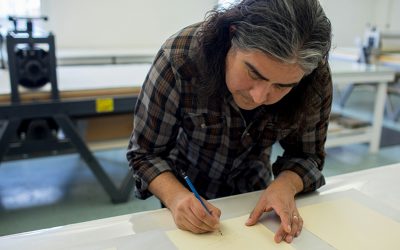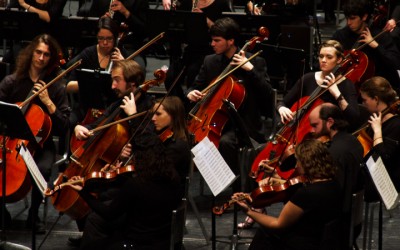During the spring of 2015, Drs. Kristin Ditlow and Karola Obermüller began planning the first installments of a contemporary music exchange. This exchange would bring American contemporary music to Germany, and likewise sponsor performances of contemporary German music in New Mexico.
The project quickly expanded to include Professors Eric Lau and Scott Ney, with performances in Nürnberg and Darmstadt and master classes in Würzburg.
darabq1summer2015 from Kristin Ditlow on Vimeo.
The program included compositions by Volker Blumenthaler, professor for composition and theory at Nuremberg Hochschule für Musik, Cord Meijering, director of Akademie für Tonkunst, Darmstadt; UNM Music Faculty Karola Obermüller, Jose-Luis Hurtado, Peter Gilbert, and Richard Hermann; and noted composers Olivier Messiaen, Lori Laitman, Milton Babbitt, and James Beale.
The Nürnberg performance was hosted by Monika Teepe and Volker Blumenthaler while the Würzburg Hochschule für Musik hosted master classes for percussion and saxophone. The Akademie für Tonkunst, Darmstadt, was the host for the Darmstadt solo “klavierabend.”
Future performances and exchanges are being planned for the coming season.
Pulitzer winning alumnus Raven Chacon to debut new composition, perform
Pulitzer winning alumnus Raven Chacon to debut new composition, perform Tickets available for performances in Santa Fe, Albuquerque By Mary Beth King August 11, 2022 Pulitzer Prize winning Diné composer and sound artist Raven Chacon, who earned his Bachelor of Arts...
The American Prize in Vocal Performance—Women in Art Song and Oratorio, 2022 Winner
The American Prize National Nonprofit Competitions in the Performing Arts, David (Volosin) Katz, founder and chief judge, is honored to announce the winners, runners-up, and honorable mentions of The American Prize in Vocal Performance—women in art song and oratorio,...
UNMSO and UNM Choirs Present: A Concert For Healing
Friday, May 5 at 7:30 pmPopejoy HallUNM Symphony Orchestra directed by Dr. Matthew Forte.UNM Choirs directed by Dr. David Edmonds The UNM Choirs and Symphony Orchestra present a concert that speaks directly to the challenges faced by musicians during the COVID-19...



